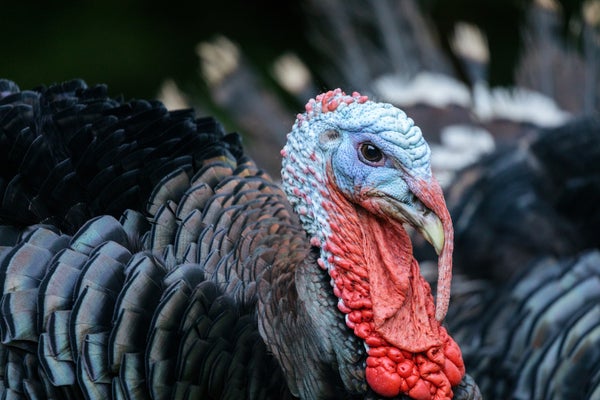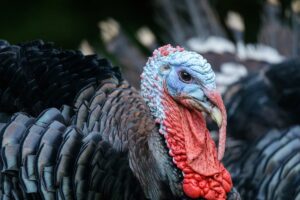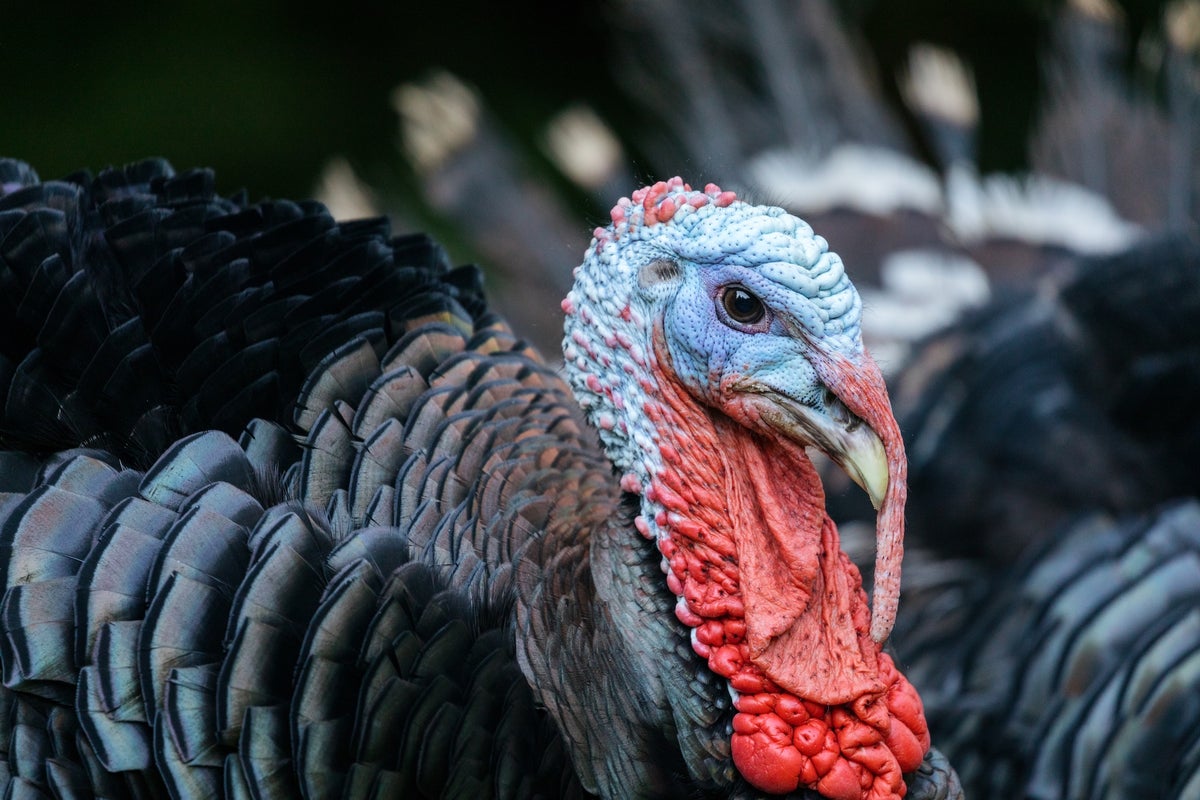November 13, 2025
3 min read
Are Turkeys at Risk of Bird Flu This Thanksgiving?
Nearly two million U.S. turkeys have died from bird flu in recent months. An agricultural economist explains what ongoing outbreaks could mean for Thanksgiving meals

Avian influenza has felled dozens of poultry flocks across the U.S. this autumn—and it has hit turkeys particularly hard. Nearly two million turkeys nationwide have been reported dead or culled because of bird flu since September began. With Thanksgiving just two weeks away, will bird flu threaten gobblers at holiday feasts this year?
After an expected summer lull in bird flu infections, the virus has reestablished a foothold. Such infections and culling efforts have killed more than eight million birds in U.S. poultry flocks overall since September, and one quarter of them have been turkeys. Last year the nation produced a total of 200 million turkeys, according to the U.S. Department of Agriculture. While bird flu has only wiped out 1 percent of the country’s annual turkey harvest in the past few months, people may worry about how the pathogen could affect Thanksgiving plans and prices. Turkey prices appear unlikely to spike, but the virus could still affect food supplies this holiday season, says Jada Thompson, an agricultural economist at the University of Arkansas.
Economic incentives that buffer supply and pricing for consumers are among the reasons that costs will probably not rise dramatically. The turkey industry is well aware of how important the centerpiece entree is for commercial success. For example, companies often donate part of their supply of turkeys, but they can reduce those donations to focus on sales if needed. “This is turkey’s Super Bowl,” Thompson says. “There’s a lot of prioritization to try to maintain the continuity of turkeys for the Thanksgiving meal.”
On supporting science journalism
If you’re enjoying this article, consider supporting our award-winning journalism by subscribing. By purchasing a subscription you are helping to ensure the future of impactful stories about the discoveries and ideas shaping our world today.
Many stores offer deep discounts on turkeys as a tactic for luring shoppers in the door, figuring that people are likely to buy everything they need for the meal in one fell swoop. That strategy means that retailers may keep turkey prices low even if limited supply otherwise pushes them up, she says.
But bird flu continues to sow chaos for farmers. Because the current outbreak of bird flu in poultry was first detected in early 2022, the industry has struggled to manage the devastating disease. Bird flu is so deadly to poultry that farmers who detect infections in a flock must cull the entire flock to slow the virus’s spread and reduce the birds’ suffering.
Turkeys and egg-laying chickens are particularly vulnerable to the virus compared with “broiler” chickens that are raised for their meat, Thompson says. Minnesota—the leader in U.S. turkey production—has suffered particularly high levels of bird flu infections this autumn. Twenty commercial poultry flocks—most of them turkey flocks—have been affected since September.
Thompson says there isn’t enough information about these infections to determine whether they are specifically part of the Thanksgiving turkey supply, however. Turkeys in the U.S. are grown to several different size ranges, she says. Smaller birds are sold whole for Thanksgiving, whereas larger birds are used for other turkey products, for example. But the USDA’s data on afflicted flocks don’t specify the size of the turkeys that have been lost.
The time line is another factor. Thanksgiving turkeys are harvested as early as July, and this continues through September. With that time frame, holiday turkeys were likely to be already frozen before bird flu began to spread again this autumn.
The upshot, Thompson says, is that she doesn’t expect Thanksgiving turkey prices to soar. But avian influenza could still put pressure on other parts of our food system through the holiday season.
Demand for eggs rises throughout the fall and winter, with peaks between Thanksgiving and New Year and another increase around Easter. And unlike turkeys, eggs can’t be harvested and frozen months in advance. It’s too early to tell whether bird flu’s destabilization will cause egg prices to spike in the coming months, as they did a year ago, but the possibility worries Thompson.
One thing is becoming clear across the poultry industry: the toll of seasonal spikes in bird flu infections is adding up. “It is not just today’s impact—the number of birds that got sick,” Thompson says. “It is also about what that supply chain will look like moving forward.”
It’s Time to Stand Up for Science
If you enjoyed this article, I’d like to ask for your support. Scientific American has served as an advocate for science and industry for 180 years, and right now may be the most critical moment in that two-century history.
I’ve been a Scientific American subscriber since I was 12 years old, and it helped shape the way I look at the world. SciAm always educates and delights me, and inspires a sense of awe for our vast, beautiful universe. I hope it does that for you, too.
If you subscribe to Scientific American, you help ensure that our coverage is centered on meaningful research and discovery; that we have the resources to report on the decisions that threaten labs across the U.S.; and that we support both budding and working scientists at a time when the value of science itself too often goes unrecognized.
In return, you get essential news, captivating podcasts, brilliant infographics, can’t-miss newsletters, must-watch videos, challenging games, and the science world’s best writing and reporting. You can even gift someone a subscription.
There has never been a more important time for us to stand up and show why science matters. I hope you’ll support us in that mission.









